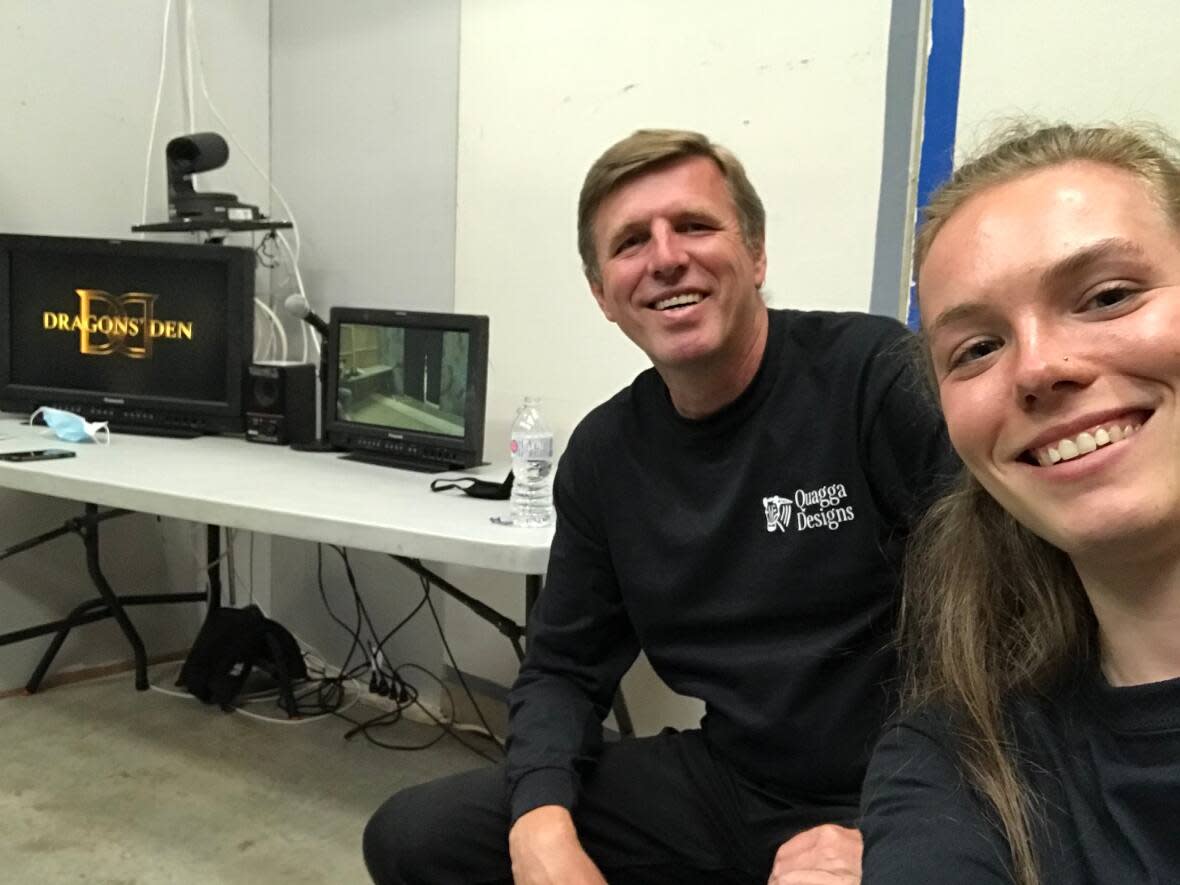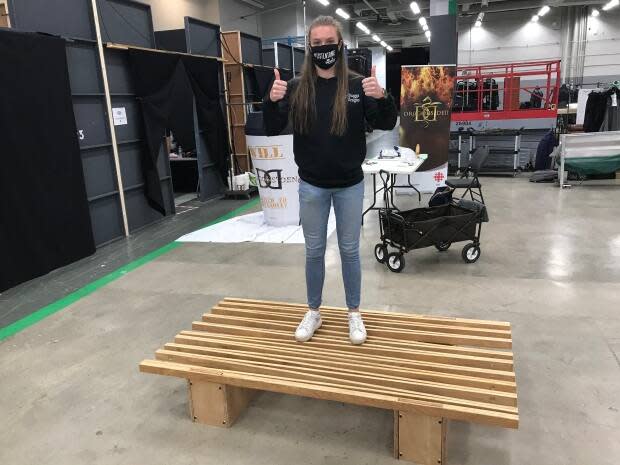Why this St. Catharines family walked away from 2 offers on Dragons' Den

A St. Catharines, Ont., family that owns a bed frame company was set to strike a deal with investors on Dragons' Den — then the father-daughter duo walked away.
Carl Heinrichs, who owns Quagga Designs with his 26-year-old daughter Janine, said they were on the investor-focused reality show last year for Season 16. The pair have invented bed frames made of Birch plywood — and some can be assembled without tools.
Heinrichs said he immigrated from Germany in 1993 after making custom furniture with his father and brother two years earlier.
The business eventually evolved when Heinrichs started designing furniture sets that might interest hotels and rental properties.
But after hearing numerous people complain about squeaky beds, Heinrichs started designing wooden bed frames. All of their beds are made of native Birch plywood harvested in Quebec. They also use linseed oil from Germany.
"We felt people are using way too much metal," he said. "We're trying to be environmentally friendly as much as possible."

In 2021, the father-daughter duo trekked to Toronto to meet with the investors, known as "dragons" on the show.
"The producer came and put the mics on and the camera right beside you and all these lights and it's a pretty big studio ... we were pretty nervous," Heinrichs said.
They asked for a $200,000 investment in exchange for a 20 per cent stake in the company. On the show, the business making a pitch cannot strike a deal unless they get the amount of money they asked for or more.
Heinrichs said they sold $900,000 in product last year and made a profit of about 17 per cent.
"They had a lot of questions for Janine, and pretty tough ones as well," he said, adding her young age spurred lots of questions from the prospective investors.

Heinrichs said they were hoping to get dragon Michele Romanow to invest since she has experience with e-commerce.
One of her startups, Clearco (formerly Clearbanc), has invested more than $2 billion into over 4,500 companies, making it the biggest e-commerce investor in the world.
The first offer, Heinrichs said, came from Wes Hall, a self-made man who has orchestrated multi-billion dollar deals for Air Canada, Citigroup, Tim Hortons and Petro Canada.
Heinrichs said Hall offered him the $200,000 for 33 per cent of the company.
Then Romanow made the same offer.
Heinrichs said his daughter asked the dragons to partner up and invest together. When that didn't work, the family tried to haggle, offering the investors $200,000 for a 25 per cent stake in the company.
"But they wouldn't budge," Heinrichs said.
The pair walked away. "It was just too much equity," he said.
Why walk away from an investment offer?
Dragons' Den didn't respond to an interview request.
Gay Yuyitung is the acting director at The Forge, a business incubator, funded by McMaster University, that helps startups.
She said there are several reasons why a business might turn down an offer from investors.
"It is always a balance and as much of an art rather than science to know how much equity to give up and at what stage," Yuyitung wrote in an email.
While the standard saying is, 'it's always better to have a small piece of a big pie instead of 100 per cent of a small one,' Yuyitung said there's also value in being the ones to drive up the success of the business.
"It can also boil down to personalities and having the trust and alignment between the founders and the investors, as to how much it is worth to give up in terms of equity," Yuyitung said.
"If you can bring in an investor that you trust will help build up the business based on their vision, then it is not an issue; but if the founder is not sure or does not have that trust, then it might make sense to walk away."
Despite not getting a deal, Heinrichs said it was a good experience. After the show, he said they sold out of most products.
The company plans on expanding into the U.S.
Heinrichs also said they're not giving up and are planning to return to the show in the future.

